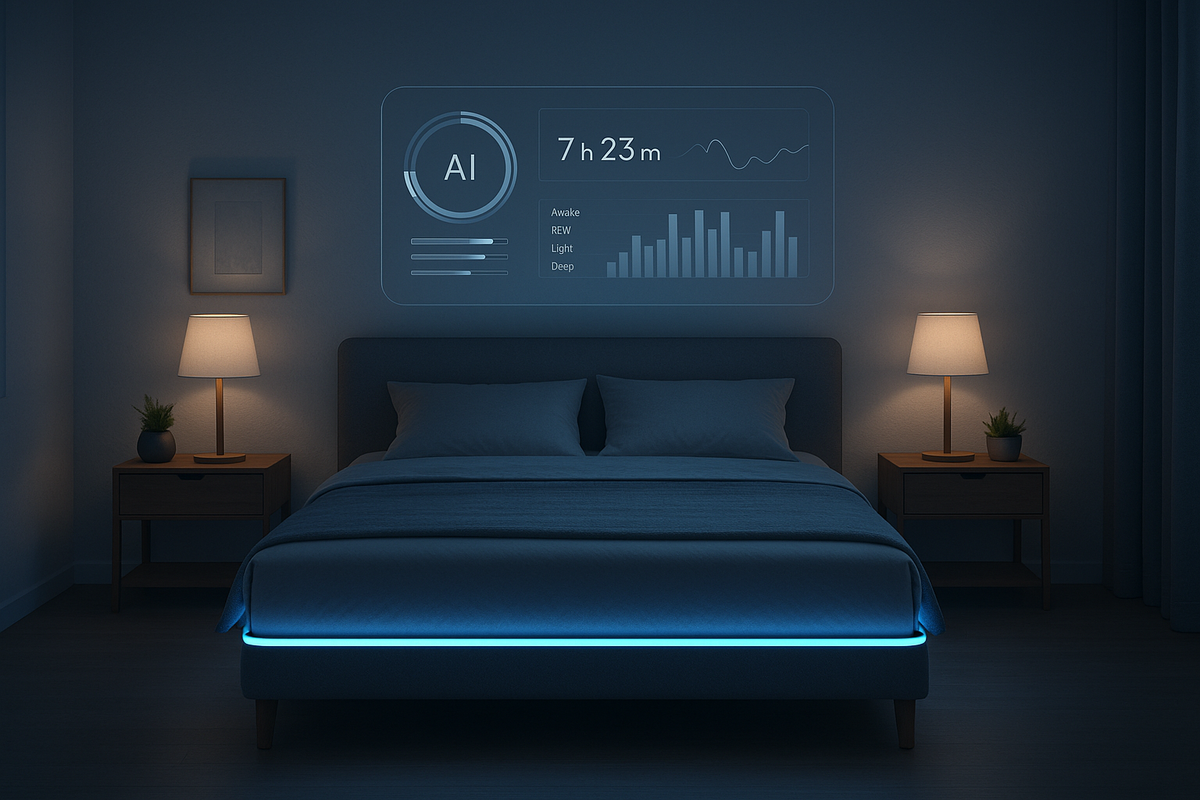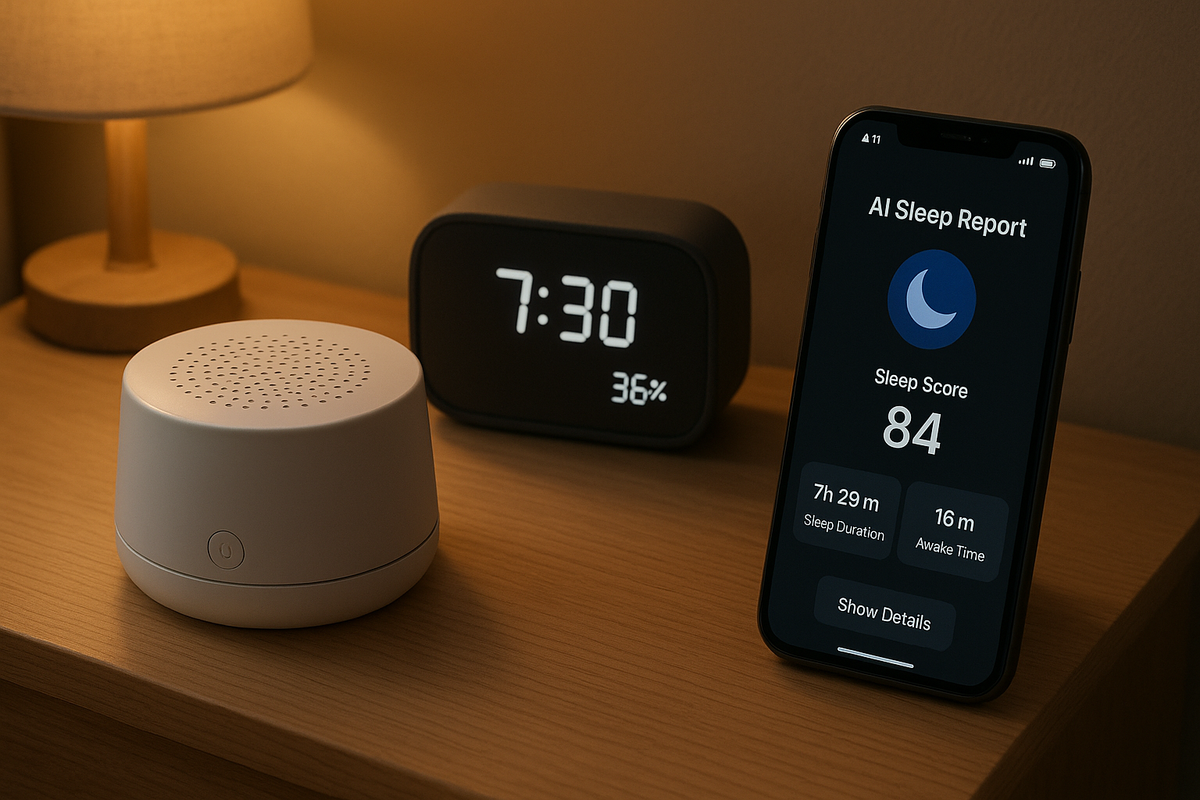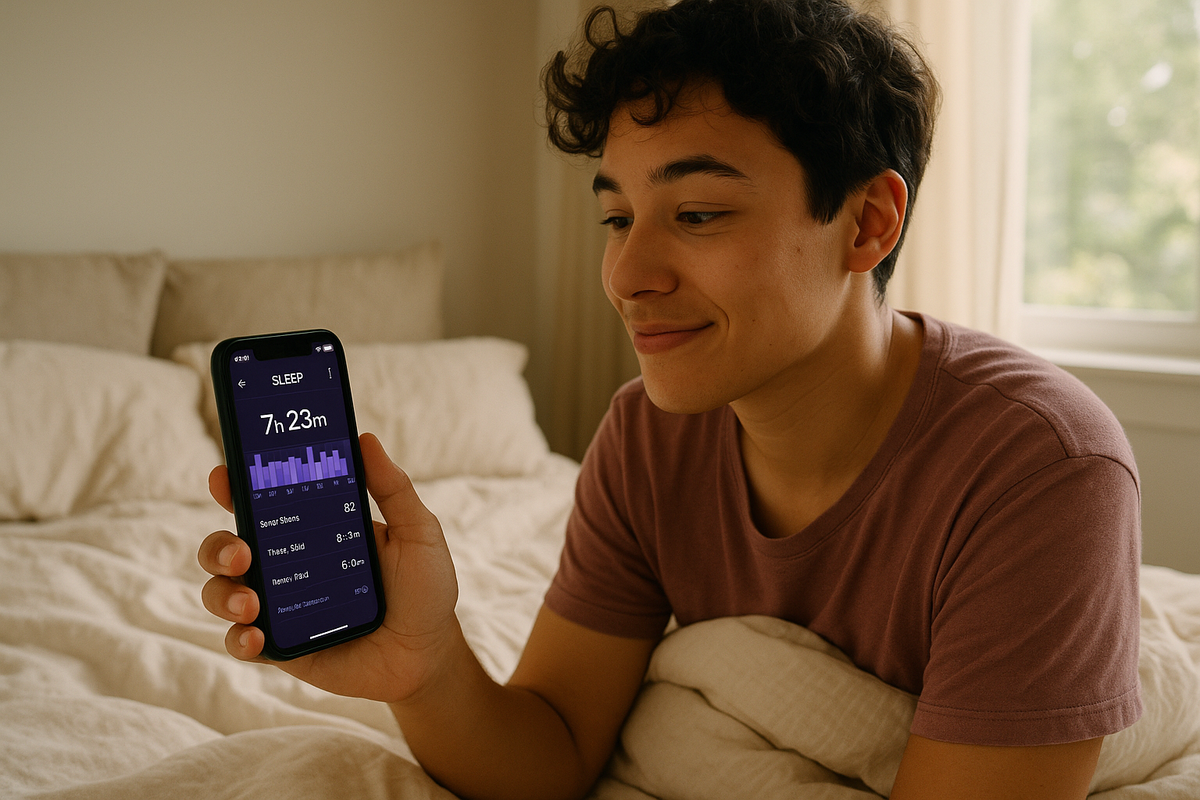AI Tools That Optimize Your Rest

Sleep used to be simple — go to bed when you're tired, wake up when you're not. But in an always-on world of blue light, buzzing phones, and high stress, “just sleep more” isn’t cutting it. That’s where AI comes in.
Artificial intelligence has quietly moved from powering smart assistants and shopping recommendations into something much more personal: your rest. The latest generation of sleep tools now leverages machine learning to analyze, coach, and even adjust your sleep in real time — all with the goal of helping you wake up truly refreshed.
This isn’t about tracking for the sake of stats. These tools are built to adapt to you.
What Makes a Sleep Tool “AI-Powered”?
AI in sleep optimization isn’t just about raw data — it’s about learning patterns over time and responding with personalized insight. Unlike traditional sleep trackers that offer a static view of your night, AI-enhanced tools continuously learn and adapt.
- Contextual Recommendations: AI doesn't just tell you that you got six hours of sleep — it tells you why it was fragmented and what to try tonight.
- Chronotype Awareness: Some tools learn when your body naturally wants to sleep and rise, then optimize guidance around that internal rhythm.
- Environmental Response: Devices like smart beds or room sensors can dynamically adjust temperature or white noise based on your sleep stages.
These tools take the burden off of you to interpret the data and instead give you something actionable.
Tools That Go Beyond Tracking

Eight Sleep Pod Pro: A temperature-regulating smart mattress that tracks HRV, respiratory rate, and deep/restless phases — then adjusts bed temperature in real time. Think of it as a thermostat for your sleep quality.
Sleep Reset: A CBT-I-based sleep coaching app that adjusts its recommendations over time. Its AI tailors a plan to reduce sleep anxiety and improve rest using personalized coaching.
Hatch Restore 2: A smart light and sound machine with AI-driven wind-down routines. It builds sleep hygiene habits by learning your patterns and gently easing you into sleep with customized light and audio cues.
Sleeprate: A lesser-known but powerful app that combines real-time feedback, biofeedback, and personalized pacing to combat insomnia using adaptive AI algorithms.
Rise Science: Focused on energy rather than just sleep. Rise tracks your circadian rhythm to coach you when to nap, sleep, and avoid caffeine — tailored to your biological lows and highs.
Real-World Performance

We tested a combination of these tools over several weeks. What stood out wasn’t just the data, but the consistency of improvement.
For example, Eight Sleep's gradual bed cooling correlated with deeper sleep scores after a few nights of use. Meanwhile, Sleep Reset adapted its coaching when wind-down adherence dropped — switching from longer reading prompts to quick breathing exercises.
Even tools without direct sleep impact, like Rise, proved powerful in managing alertness and energy through better-timed sleep and wake guidance.
It wasn’t perfection overnight — but each tool showed measurable changes in either sleep onset latency, night wakings, or morning alertness when used consistently.
How They Fit Into a Routine
The best AI sleep tools don’t try to replace your habits — they shape them. Many users see the most benefit when they integrate these tools into a consistent nighttime ritual.
- Use Hatch to signal it’s time to start winding down — dim the lights, fade into white noise.
- Let Sleep Reset coach your routine over the first few weeks, adjusting based on adherence.
- Layer Eight Sleep as a passive background optimizer — once set up, it requires no effort.
- Check Rise in the morning for ideal times to focus or rest, based on circadian trends.
These systems work better together, creating a feedback loop between behavior and environment.
What to Watch Out For
- Subscription Creep: Most of these tools require ongoing subscriptions. If you’re layering multiple apps, costs add up fast.
- Over-Reliance on Metrics: Obsessing over sleep scores can create anxiety. Remember, AI is a guide, not a diagnosis.
- Privacy Concerns: With biometric and behavioral data in play, always check where and how your data is stored.
Used mindfully, though, these tools become empowering rather than overwhelming.
Who Should Use AI Sleep Tools?
- Busy professionals struggling with consistent sleep schedules
- Shift workers trying to manage irregular circadian cycles
- Parents or caregivers needing more efficient rest
- Biohackers and wellness enthusiasts seeking data-backed improvement
If you’ve ever laid in bed thinking “why am I still tired?”, AI sleep tools are for you.
Final Thoughts
Sleep is personal — and AI is finally making sleep support personal too. While no app or smart bed will magically fix bad habits or chronic issues, these tools can absolutely help guide you in the right direction.
They turn raw data into recommendations. Trends into tweaks. Sleep into strategy.
If you’re ready to move past generic advice and into sleep that adapts to you, AI-powered rest might be your smartest upgrade yet.
